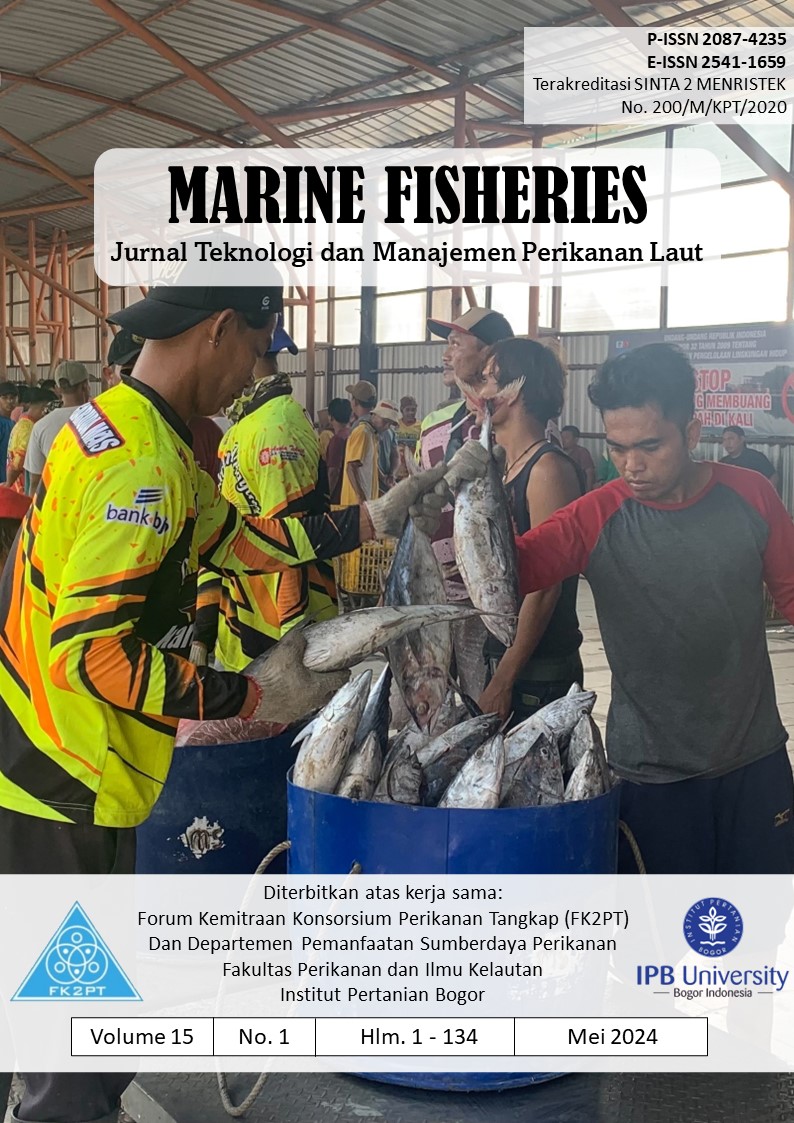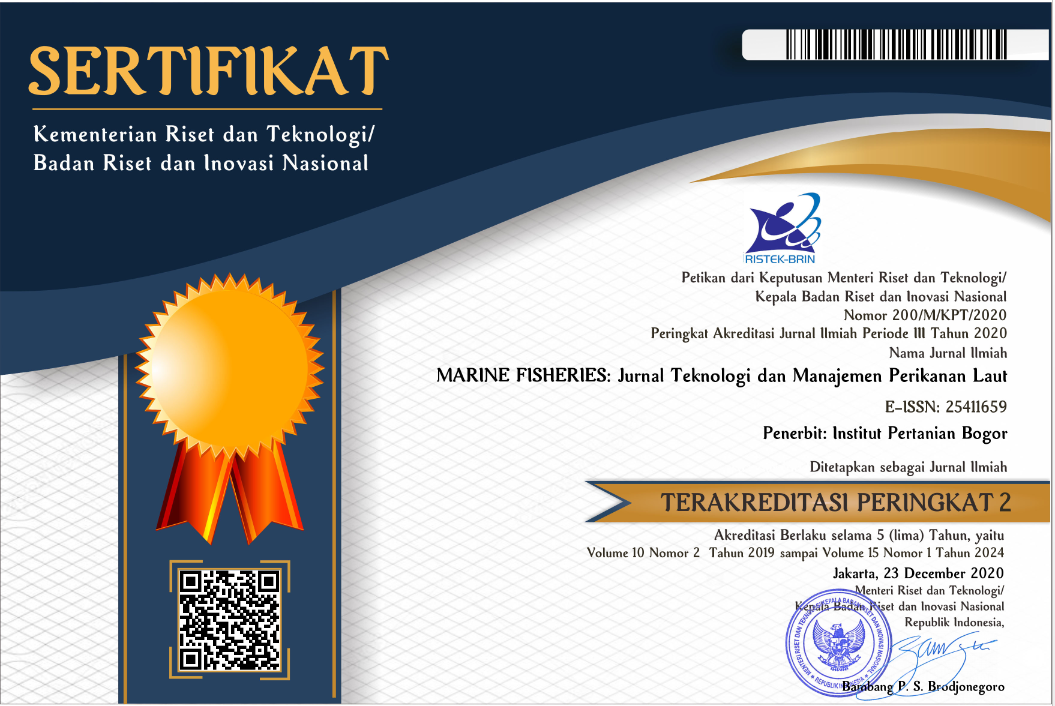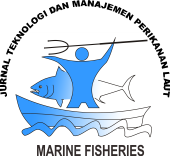STATUS PEMANFAATAN IKAN KAKAP (Lutjanus spp.) BERBASIS DATA PANJANG IKAN DI PERAIRAN TAMAN NASIONAL TAKA BONERATE
Length Based Stock Assessment of Snappers (Lutjanus spp.) in Taka Bonerate National Park Waters
Abstract
Snappers (Lutjanus spp.) are the most common reef fish caught in Taka Bonerate National Park due to its high economic value and primarily targeted species. Without proper management measures, intensive fishing activities might result in unsustainable fish stocks. Therefore, in order to maintain sustainable utilization, it is important to understand the stock status of snapper fisheries. This study aimed to analyze the snappers' stock status in Taka Bonerate National Park's waters. Data were collected from January to December 2022 at three small-scale fisheries landing sites. The results showed that snappers are classified as slow-growing species with growth rates for species L. bohar, L. quinquelineatus, L. gibbus respectively 0,12, 0,39, and 0,35 per year to reach their respective asymptotic lengths of 83,41 cm, 29,5 cm, and 46,80 cm. The stock status of L. gibbus and L. bohar were indicated at overfished status where the exploitation rate (E) was > 0.5 and the SPR was < 0.3, hence a proper management measures is required. Furthermore, the species of L. quinquelineatus has a value of E is 0.5 and SPR is at 0.3, indicating that the utilization level of this species was at an optimal level.
Keywords: Snapper, Taka Bonerate, Fisheries Management.
Downloads
Copyright (c) 2024 Alifah Fitam Rakhma Sari, Asep Pranajaya, Khoirul Anam, Isnaini Marliana, Sukmaraharja Aulia Tarigan, Tasrif Kartawijaya, Siska Agustina, Duranta Diandria Kembaren, Mohammad Natsir, Rian Prasetia

This work is licensed under a Creative Commons Attribution-NonCommercial 4.0 International License.
Author(s) who published in this journal agree to following terms:
- Author(s) must understand and agree that the copyright script in published owned by the Marine Fisheries Journal. The copyright includes reproducing and selling the manuscript to all parties.
- Everyone can cite every manuscript published in Marine Fisheries for educational purposes, with the author's name and the Marine Fisheries Journal on reference.










